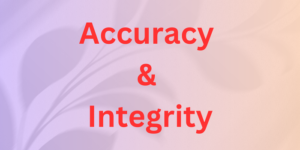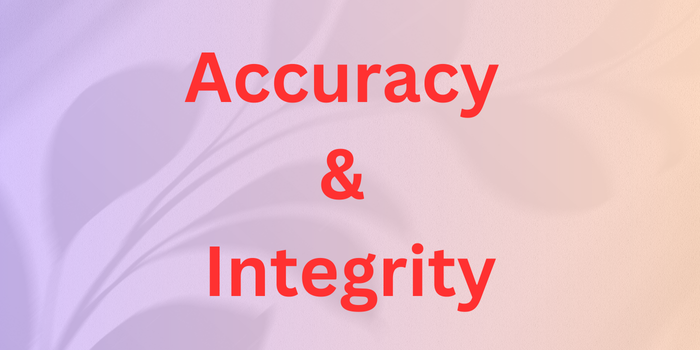Ensuring Accuracy and Integrity in Medical Billing: Compliance and Ethics
In the intricate world of healthcare, where patient care and financial transactions coexist, it is critical to guarantee medical billing accuracy and integrity. Medical billing is an essential component of providing high-quality healthcare and upholding industry trust, not just a financial procedure. This article provides insights into procedures that guarantee accuracy and integrity while examining the significance of compliance and ethics in medical billing.
The Crucial Role of Medical Billing Accuracy
Medical billing involves translating healthcare services into standardized codes, which are then submitted to insurance companies or patients for payment. The accuracy of this process affects not only the financial health of healthcare providers but also the quality of care patients receive. Errors in billing can lead to incorrect charges, denied claims, and even fraud allegations, impacting both patients and providers.
Compliance with Regulations Accuracy
The foundation of ethical medical billing is bound to healthcare regulations. Numerous laws, such as the False Claims Act, the Affordable Care Act, and the Health Insurance Portability and Accountability Act (HIPAA), regulate the healthcare sector. These rules are intended to safeguard patient data, guarantee accurate invoicing procedures, and stop fraud.
- HIPAA Compliance: Patient data protection is required by HIPAA. Medical billers are responsible for making sure that patient data is handled with the highest confidentiality and is only utilized for that purpose. This involves making sure that any communication containing patient information is secure and protecting electronic health records.
- Accuracy and Documentation: Precise documentation is necessary for accurate billing. Medical billers have to make sure that all submitted claims are supported by documentation and that codes correspond to the services rendered. Financial consequences and compliance problems may result from inaccurate coding or inadequate documentation.
- Audit and Reviews: Conducting routine audits is crucial for preserving compliance. Audits, both internal and external, aid in finding inconsistencies, thwarting fraud, and guaranteeing compliance with billing procedures. These evaluations serve as both legal requirements and best practices for integrity and transparency.
Ethical Considerations in Medical Billing Accuracy
Medical billing ethics involve more than just following the rules; they also entail a dedication to justice and integrity in all facets of the billing procedure.
- Avoiding Downcoding and Upcoding: Unethical practices include upcoding, which involves billing for services at a higher level than they are actually provided, and downcoding, which involves billing for services at a lower level. Ensuring ethical standards are upheld requires accurate coding that accurately represents the nature of the services provided.
- Transparency with Patients: Maintaining open lines of communication with patients regarding their financial obligations and billing processes helps to build trust and avoid misconceptions. Ensuring ethical interactions and improving patient satisfaction can be achieved through offering comprehensive explanations of charges and resolving any concerns.
- Preventing Fraud: Falsifying patient data, charging for services that were not rendered, and double billing are examples of medical billing fraud. Strong ethical standards and an integrity-focused culture can be established to help stop these kinds of things from happening in billing departments.
Implementing Best Practices for Accuracy
Healthcare companies can use several best practices to guarantee medical billing compliance and ethical integrity:
- Training and Education: Medical billing employees must receive ongoing training on the most recent laws, coding procedures, and moral principles. Education initiatives ought to place a strong emphasis on the value of truthfulness, obedience, and moral conduct.
- Utilizing Technology: Electronic health record (EHR) systems and sophisticated billing software can improve efficiency and accuracy. But to prevent mistakes and guarantee data security, technology needs to be used properly.
- Encouraging a Culture of Integrity: One way to stop unethical behavior in the billing department is to encourage an honest and accountable culture. A clear framework for addressing ethical issues and incentives for staff to report concerns to help foster an environment of transparency and accountability in billing.
Conclusion
In the field of medical billing, ethics, and compliance are crucial to providing high-quality care as well as being legally required. Healthcare organizations can guarantee accuracy and integrity in their billing processes by following rules, adopting ethical behavior, and putting best practices into practice. This promotes the general efficiency and equity of the healthcare system in addition to maintaining the trust between patients and providers.
Read More:
https://healthguidepolicy.com/category/blog/





1 thought on “Accuracy and Integrity in Medical Billing 2024”